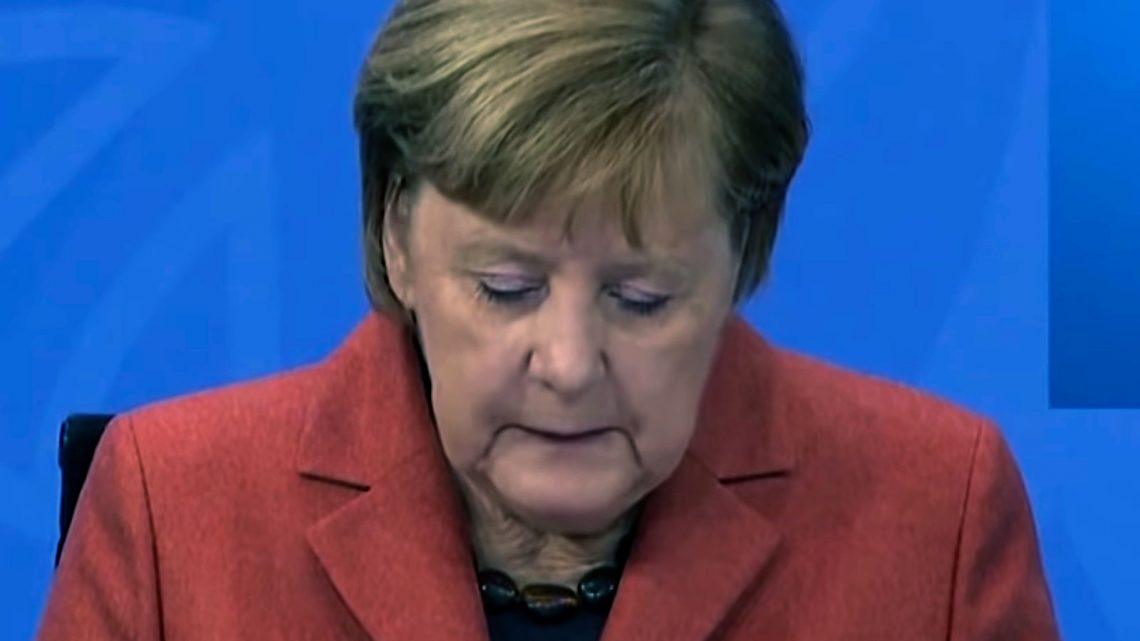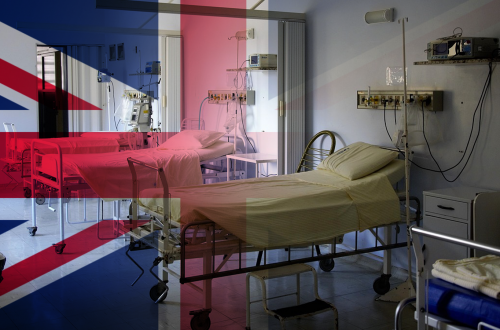German Chancellor Angela Merkel has announced a new lockdown for Germany:
In its detail, it pretty much resembles our own: limits on the number of people who can meet, where they can meet, how many households they can be from, non-essential shops closing, limits on certain goods being sold, etc., with some concessions over Christmas. They are also closing schools, which is still the subject of some debate here:
The Labour Party says we should close schools. Meanwhile, the Labour Party says we should keep schools open. Either strategy is likely to be ineffective. The virus has its own mind and confounds any plan to deal with it.
Of course Sadiq Khan, the Mayor of London has said that the key to keeping schools open is an effective Test & Trace system, which we know won’t work, for the reasons I discussed a while back here, so I won’t rehash them.
But since the beginning of the Covid-crisis, our media have been relentless in suggesting that Germany’s T&T has been a success and that it is what we should have been emulating – along with conspiracy theories about the company that implemented ours.
“Britain is patting itself on the back over testing—after the peak has passed. How many lives could have been saved by taking the German approach from the off?” said Prospect magazine, describing Germany’s system as “a masterclass”.
“Germany and Korea expose flaws in the NHS track and trace plan,” declared Wired magazine.
“Mr Johnson claimed on Wednesday that “no country in the world has a working contact-tracing app”. But the German app has been downloaded 13m times,” crowed the Financial Times.
“Germany does have an extensive testing system, a well-established network of public health track and trace officials, and a greater number of places in intensive care units than most other countries,” was the BBC’s more sober report.
“Contact tracing is working around the world – here’s what the UK needs to do to succeed too,” ventured The Conversation, citing the German system as a model we should emulate.
“She said that the £10bn being spent on NHS Test and Trace would be better spent on a more localised system, like that in Germany,” said the British Medical Journal, reporting the comments of Maggie Rae, president of the Faculty of Public Health.
“Emerging COVID-19 success story: Germany’s strong enabling environment,’ headlined health website, Our World In Data, as it editorialised effusively: “These protocols included early establishment of testing capacities, high levels of testing (in the European Union, Germany is a leader in tests per confirmed case), an effective containment strategy…”
“Germany has also won praise for its early establishment of testing capabilities and was a leader in tests per confirmed case in the European Union,” lectured the HuffPost while pointing out that the UK’s system was suffering delays.
“Germany’s regional response to the pandemic is a model for the UK,” declared The Times, noting the differences in approach between Germany and the UK.
“Covid-19 track and trace: what can UK learn from countries that got it right?”, sneered The Guardian, adding with some smugness that “Pledge of ‘world-beating’ system will have to look to likes of South Korea and Germany”.
You get the idea.
However, now the BBC reports that Germany is suffering record deaths, as a government minister declared the virus “out of control”. And of course, they are following us into a national lockdown.
This is a tragic outcome and it is depressing news. A sane person would welcome systems which proved to be effective, but the truth is that very little has actually had much success against this virus, and every effort made by any government has been qualified, limited, or has had considerable trade-0ffs. I find it revolting that our media has sought to make this a competition in its effort to stir controversy and to make the virus a political football.
Even today, as Mayor Khan declared sombrely that T&T was key to opening schools and businesses ‘safely’ journalists have failed in asking the very basic questions that follow from this assertion. Instead they have nodded as if what he were saying were an obvious truism. If they were honest, they would acknowledge that the issue of T&T has become a political whistle, to be blown, to assemble the ‘troops’. If they were honest they would ask these questions:
- Why is Germany, with what was previously declared one of the best T&T systems in the world, now having to close is schools and daycare centres?
- Who are you proposing conducts the testing” Teachers? Nurses seconded to each school? How much of a school day will it take to test, since the average secondary school is around 1000 pupils.
- Since the vast majority of children are asymptomatic, are you suggesting that every child is tested, regardless of whether they show signs of symptoms? If so, how regularly, since surely an ‘all clear’ on a Monday is no guarantee of the same on a Thursday, or the following Monday? Is this a proposal to conduct several tests every week of 9 million children? What are the logistics of dong so?
- The swab test is very invasive and some say, painful. Will school children submit to regular testing of this sort?
I don’t know the answers to these questions, but it seems scandalous to me that the media is not doing its most basic job of even asking!
Instead it just allows politicians to parrot the soundbites.
Now there is news that a possible reason for the newest wave is that the virus is mutating. It is always a step ahead. Instead of trying to constantly score political points with the Covid-19 response, isn’t it time to admit that we are all – from Sweden’s no-lockdown, to Germany’s more robust response, and the UK somewhere in the middle – trying to feel our way through a mist. We’re falling down holes and tripping over rocks, and doing our best to move forward, the public; the scientists; and the governments alike.
It would be easier without the political partisanship, the point-scoring and the grandstanding- and better for our mental health.





